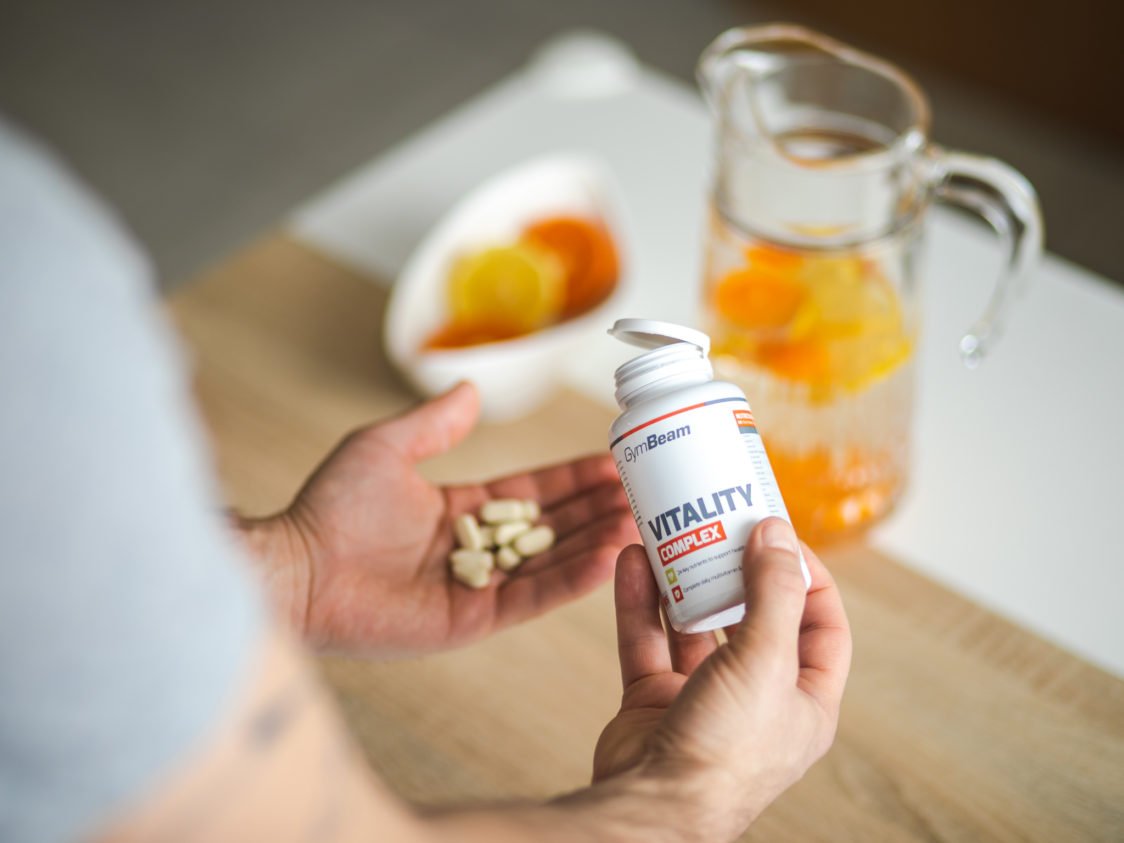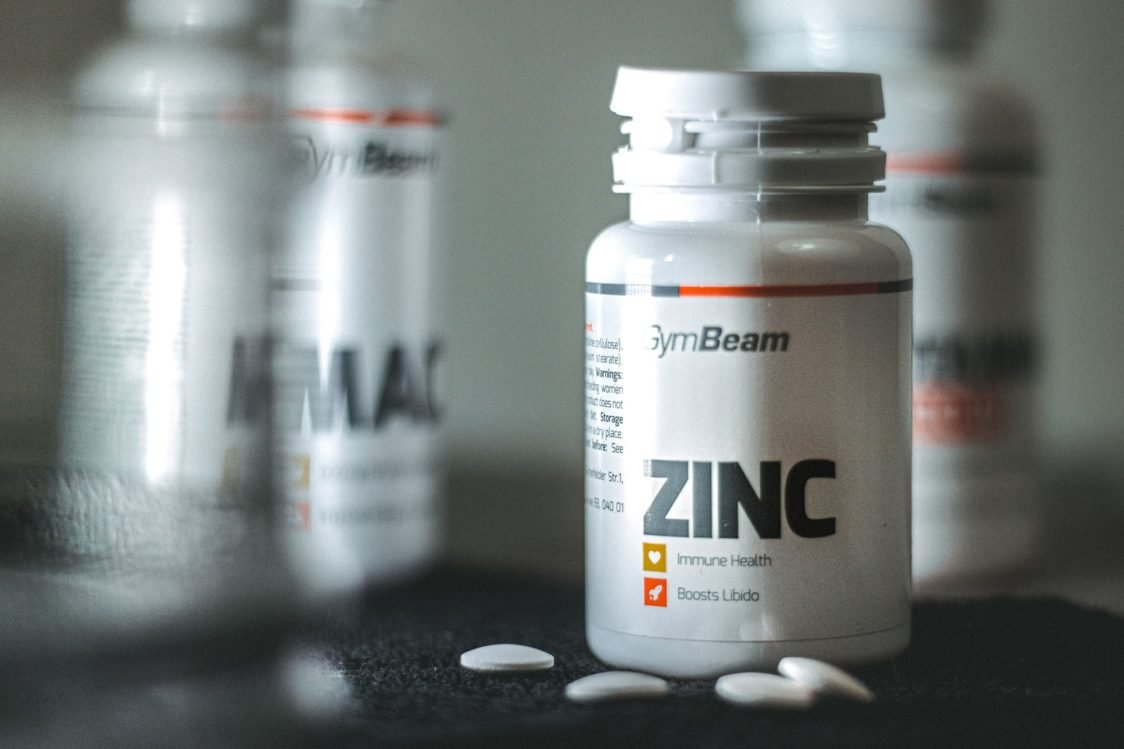Should we all start the day on a multivitamin pill? There are groups of people who need more vitamin and mineral supplements than others to stay healthy. Are you one of them You can find various multivitamins and multiminerals with different compositions and shapes on the market. They are available in the form of tablets, capsules, beverages, and now jelly candies as well. Read more about multivitamins, their importance during the flu period, but also about the potential risks.
Multivitamins
In the world of dietary supplements you will come across products that contain one nutrient, a combination of several useful substances, but also a whole range of nutrients . The term “multivitamin” includes food supplements with a large number of vitamins, minerals, but also other ingredients . It is a popular and practical way to supplement the nutrients necessary for the body to function properly. [1] [2]
A person has to take 13 vitamins to stay healthy. We have to get them from somewhere, with two exceptions – Vitamin D and B3 , which the body can produce under certain conditions . We also bring a list of vitamins with the recommended daily dose – nutrient reference value (NRV) :
| Nutrient reference value (NRV) – reference amount for the daily intake | |
|---|---|
| Vitamin A | 800 μg |
| Vitamin C | 80 mg |
| Vitamin D | 5 μg |
| Vitamin E | 12 mg |
| Vitamin K | 75 μg |
| Vitamin B2 (riboflavin) | 1 , 4 mg |
| Vitamin B3 (niacin) | 16 mg |
| Vitamin B5 (pantothenic acid) | 6 mg |
| Vitamin B6 | 1.4 mg |
| Vitamin B7 (biotin) | 50 μg |
| Vitamin B9 (folic acid ) | 200 μg |
| Vitamin B12 | 2.5 μg |
minerals, We have not yet mentioned that are also important for humans. They are divided into main minerals and trace elements , as they occur in different amounts in the human body. For a better idea we present them in an overview table [4] :
| main minerals | trace elements |
|---|---|
| Chloride | Fluor |
| Potassium | |
| Phosphorus | Iodine |
| Magnesium | Manganese |
| sulfur | copper |
| Sodium | Molybdenum |
| Calcium | Selenium |
| zinc | |
| Eisen |
It would be great and ideal , to take all nutrients in appropriate quantities from food . For example, think about your diet that you ate in the past month. Have you consumed enough fruits, vegetables, whole grains, and sources of protein? If you answered yes, we sincerely congratulate you and may even envy you that a large section of society is unable for various reasons to satisfy needs with nutrients from food. In this case, multivitamins are a practical solution for supplementing vitamins and minerals.
Why is it important to take multivitamins?
It would be ideal to take vitamins and minerals such as fruits, vegetables, and other necessary ingredients from your diet. Do I really balance your diet and control your intake of all minerals and vitamins? Multivitamins are a practical solution. You don’t need to control the amount of vitamin C or iron in your diet as they are listed right on the product packaging. Among other things, the consumption of fruit and vegetables is high, but with increasing age, our nutritional needs increase and at the same time the body has a bigger problem with the absorption of nutrients. [21] Last but not least, a specific type of diet, such as veganism or difficulty in absorbing certain nutrients from the diet , may be the reason for the lack of nutrients.
How do you choose a multivitamin?
The range is wide, the packaging is colorful, but the dosages are different. How do you identify the best multivitamin to replenish missing nutrients? Some people prefer pills, others definitely prefer a drink or gummy bears. The final decision is yours, but we still have a few tips to help you choose a multivitamin.
- Read the content of ingredients – in addition to the number of nutrients in the multivitamin, you should also check their contents . Then decide between products that approach the recommended daily dose ( Recommended Daily Allowances, RDA) with the amount of active ingredients. The abbreviation RDA or AI (Adequate intake) refers to the nutrient concentration that must be taken to maintain good health . Taking supplements in excess of the recommended daily doses can have side effects.
But how can we tell if the dose is too high?
In addition, the recommended daily intake of vitamin C is 80 mg and several dietary supplements contain 500 or 1000 mg. In addition to the recommended daily dose, there is a tolerable upper limit (UL), the value of the highest possible dose without risk. This limit can in some cases be quite far from the recommended dose be removed . Therefore, you can take certain vitamins and minerals in amounts that are above the recommended daily dose.
The upper limit of vitamin C is, for example, 2000 mg, of zinc 40 mg and of vitamin B6 100 mg per day. In addition, there are some upper limits only bound to the supplement form and do not exist in natural sources such as vitamin B3, magnesium or folic acid . In other cases, you need to consider all sources, including foods. Remember that upper and recommended doses differ between adults, children, the elderly, and potentially pregnant and lactating women could be. And now the most important thing: Some nutrients have an upper limit close to the recommended and their high intake can be dangerous for the body, such as vitamins A, E, K, but also selenium and iron.
- Number of tablets versus number of cans – The number of capsules or tablets is becoming common indicated on the packaging of the products. Remember, that 90 tablets don’t necessarily mean 90 doses . It can look good in the product range, but if, for example, the daily dose is 3 tablets, the entire pack will last a month.
- Price vs quality – The price of a multivitamin supplement can vary quickly. Therefore, try to carefully evaluate your priorities depending on the price so that you do not pay unnecessarily for beautiful packaging and ingredients that do not interest you.
- Choose quality manufacturers – Multivitamins can also differ from other dietary supplements in that their use may not have as obvious an effect as, for example, sleeping pills, which you can judge their effects immediately. You can also determine the quality of the product based on the reputation of the manufacturer . These days it’s not difficult to find various reviews and forums and to check overall whether the company has a “good reputation”.

Who should be taking multivitamins?
Each of us sometimes needs to supplement vitamins and minerals, be it after taking antibiotics, inadequate nutrition , or for other reasons. However, there are groups of people who may particularly need multivitamins [6] [8] [9] [18] :
- Pregnant and breastfeeding women – Pregnant women are often recommended to supplement folic acid , for example, as this reduces the risk of neural tube disorders. However, this category of women should consult their doctor about nutrient intake , as not all vitamins are beneficial for them. For example, Vitamin A is dangerous during pregnancy due to the possibility of congenital disorders of the fetus.
- Breast-fed infants (partially and exclusively).
- Older people – may need them mainly vitamin B12, calcium and vitamin D.
- Vegetarians and vegans – these diets may be lacking Vitamin D, iron, zinc, calcium or omega-3 fatty acids . Learn more in our article What Nutrients Vegans Are Most Missing And How To Supplement Them?
- Athletes – Vitamins and minerals are needed by all of us, athletes are no exception. vitamins and minerals are present in various processes associated with metabolism, the conversion of nutrition into energy, or with bones or collagen . According to some research, athletes should increase their vitamin intake due to the high level of activity. On the other hand, there are no guidelines or recommendations for the different intake of vitamins aimed at athletes . Dietary supplements with vitamins and minerals do not improve your performance, but their deficiency can lead to poorer performance.
- People with poor nutrient absorption (Malabsorption) or diagnosed nutrient deficiencies.
- People with restricted access to food
- People with gastric bypass
Disadvantages and risks of Multivitamins
We mentioned above that pregnant and breastfeeding women should consult a specialist on the absorption of vitamins and minerals because of the amount of vitamin A. In general, multivitamins are safe, but there are several potential risks :
- An increased intake of vitamin D and calcium can cause kidney stones.
- High doses of vitamin B6 over a long period of time (one year or more) are associated with nerve damage.
- A high beta-carotene intake in smokers is associated with a higher risk of lung cancer . Beta-carotene supplementation can affect the absorption of other carotenoids from food, of which there are more than 600.
- High doses of vitamin E lead to a stroke and supplementation with this vitamin is linked to a higher risk of heart failure and all-cause mortality.
- Vitamin K influences the anticoagulant effect on the blood thinning .
- The mineral iron is important for humans, but should be used if there is a shortage or a defined need . Iron supplementation is important for below average iron levels caused by heavy menstruation or pregnancy . However, there is also evidence that excessive iron intake carries a higher risk of heart and neurodegenerative diseases as well as colon cancer caused by increased iron stores.
- Very low and high doses of selenium are dangerous. For example, increased doses are associated with various diseases – diabetes, prostate cancer, or amyotrophic lateral sclerosis (ALS).
- It is not recommended To supplement mineral copper , as its excess is linked to an increased risk of Alzheimer’s disease or an increase in all-cause mortality and cancer.
According to a study from 2016 , taking high doses of dietary supplements containing vitamins A, E, D, C and folic acid is not always beneficial. What’s worse, it can also be harmful to your health. Many people believe in the maximum safety of multivitamins, but the health consequences of long-term use of overdosing multivitamins are not known. According to scientists, it makes sense to the intake of these vitamins to be limited to those we miss. [12]
Avitaminosis and hypervitaminosis
These two Words are related to the content of vitamins in the body, the meaning and difference of which each of us should know.
Avitaminosis – a condition caused by a deficiency is caused by one or more essential vitamins.
Hypervitaminosis – a condition caused by excessive intake of one or more vitamins.
Are multivitamins or single-component supplements better?
Multivitamins are not the solution to a bad lifestyle. To stay healthy , it is better to eat fresh foods and a balanced diet . If you are worried about nutritional deficiencies, try writing down your diet for a day and checking the nutrient levels. It’s a hassle, but you’ll at least have a little idea of how (im) balanced your diet is is. You can also have a blood test carried out to determine the exact nutritional values
Are you missing a nutrient or two? You can also buy most micronutrients, vitamins and minerals separately. If you are lacking a certain vitamin, then it is better to solve it in the form of a one-component product. You can also fix the deficit with multivitamins, but you can rest assured that they also contain ingredients that you don’t currently need. If you can’t decide whether to choose separate dietary supplements or a range of nutrients, consult your doctor .
Multivitamins during the flu period
The consumption of multivitamins is common with the flu period, the prevention of influenza and Common colds as well as strengthening immunity. The question is, which components of multivitamins are best suited for the fight against “sneezing and runny nose”. According to the nutritionist, the vitamins A, C and D3 as well as zinc and probiotics are helpful for strong immunity.
Vitamin C is probably the most popular vitamin for colds and flu. Interestingly, according to research, vitamin C is not suitable for preventing colds. It’s great during treatment, research shows it reduces the duration of colds by 24-36 hours , but there are also studies that claim higher doses of Vitamin C have no positive effects. However, vitamin C can be helpful in preventing colds in those who exercise hard or who have been exposed to cold weather. [14] For more information on supplements to help you with flu and colds, see the article – What Supplements Can Help You With Flu and Colds?

Zinc supplement helps relieve symptoms of the common cold. A 2016 study found that zinc deficiency weakens the immune system, which decreases the ability to fight infections . According to a survey from 2011, sick respondents who took zinc had a shorter cold history and at the same time, her symptoms were less severe.
if you If you want to support your health, you can also use intestinal bacteria in probiotics, echinacea , or garlic and ginseng . If you want to protect yourself against colds and flu, focus on multivitamins that contain these components. Certain studies have shown their importance but do not guarantee that you will definitely not get sick. Would you like to learn more about the importance of probiotics? Read the article – Probiotics: The Importance of Beneficial Bacteria in Athlete Immunity and Overall Health.

Multivitamins are a practical way to supplement the vitamin and mineral content . However, it does not mean that all of us should use them for a long time. There are groups of people for whom they are more important. Even so, they will help you get the necessary nutrients during the flu period, but they are no wonder for all illnesses. Hence, it is still true that the ideal source of nutrients is diet. But who has time to thoroughly check the nutritional content of their diet in these hectic times? In this case, multivitamins will help. However, do not buy the first product you find, but carefully consider the advantages and disadvantages of the product . We hope that we have once again enriched your knowledge and that you have learned everything you need to know about multivitamins. Would you like your friends to be informed about this topic? Feel free to support the article by sharing it.
